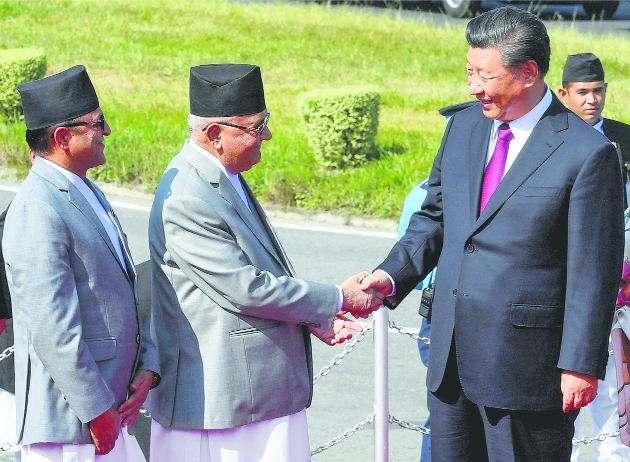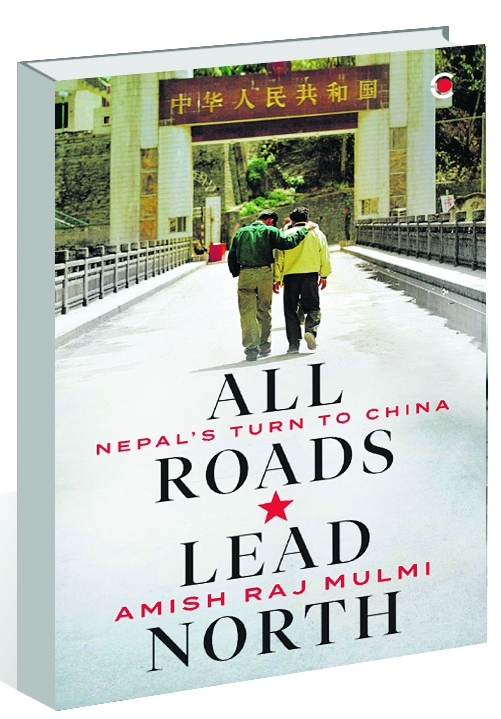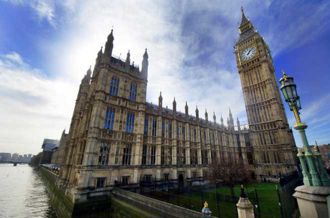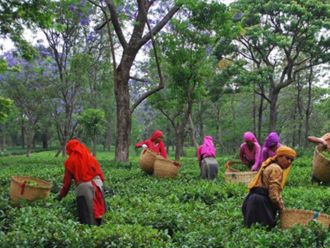All Roads Lead North: Nepal’s Turn to China by Amish Raj Mulmi. Westland. Pages 320. Rs799
Book Title: All Roads Lead North: Nepal’s Turn to China
Author: Amish Raj Mulmi
Maj Gen Ashok K Mehta (Retd)
Nepal, the small Himalayan nation wedged between two giant neighbours, China and India, has for more than a century sought to create sovereign space to act independently of India. Since 2015, stars got so re-aligned that Nepal decided to turn to China when two major Communist parties aligned and merged to form the Nepal Communist Party. It swept the polls with a two-thirds majority in the Lower House, simple majority in the Upper House, governments in six of seven provinces and victories in 80 per cent of local elections. Prime Minister KP Oli capitalised on such a breathtaking electoral success and political stability with his brand of ultra-nationalism following India’s clumsy reactions to Nepal’s non-inclusive Constitution of 2015, backed by China’s behind-the-scenes political activism. Almost all at once, Nepal’s Look North gaze was visible and this has been competently encapsulated in Amish Raj Mulmi’s ‘All Roads Lead North’.

The book is a blend of history, travel and elegant imagination enriched by the vivacity of prose and vigorous archival research but not without, I dare say, discernible bias for the elusive China card.
Mulmi, in fact, traces the birth of the China card to the deteriorating relations between India and China and events from January to September 1962 — the King Mahendra Janakpur bomb-throwing incident, the India-imposed unofficial blockade and Chinese Foreign Minister Chen Yi’s statement: “In case any foreign army makes a foolhardy attempt to attack Nepal, China will side with Nepalese people.”
At the heart of Nepal’s grievance is the 1950 treaty, the root of an unequal relationship; the simmering border row; the economic blockades of 1988/2015 and New Delhi’s micro-management, including lack of respect for Nepal’s sovereignty (taking Nepal for granted). “Therefore, in 2015, China no longer saw Nepal under India’s umbrella,” says Mulmi, the China card having graduated to 21st century Nepal-China relations.
How enamored Mulmi is with China can be gauged from one-liners like: ‘China is ultimate ray of hope for Nepal’; ‘Today, across length of Nepal, it is China’s soft diplomacy’; ‘Ordinary Nepalis have begun to believe in China’s potential to transform this country’; ‘It is in Rasuwa border one witnesses Nepalese’ belief that China is a better neighbour than India’; ‘Little imagination is needed why Nepalese think of China as a superpower’… This gives way to passionate prose that ‘China is many things, superpower, aid-giver, friend in need, essential provider, demanding neighbour, older brother (was always India), competitor, model for development and growth and vision for development in future’.
His description of Chinese penetration in Nepal, be it his hometown Pokhara or Kathmandu’s Thamel or even Mandarin teachers in villages, is revealing as China seems poised to overtake India in FDI. Besides its singular focus on Tibet and Tibetans over which Nepal is pleased to please, the long-term aim is to seek parity with India. The China-Nepal Economic Corridor, part of BRI, seeks to connect North with South, the open sesame to India’s strategic Indo-Gangetic plains and its markets. Given the current hostility in geopolitics, factors of security might trump economics.
Mulmi is critical of China, too, but much less than the high praise for it. Ultimately, for Mulmi and many Nepalese, it is this shift to China that the Nepalese would not want to admit, of Kathmandu’s determination to stand up to Indian bullying, partially driven with Chinese help, to break free from special relations, Nehru’s magnificent frontier and dependence on India. But he admits that while Kathmandu has failed beyond its China card, unable to turn it into a winning hand, Beijing has secured its larger interests in Nepal. Mulmi’s India-bashing is justified and a wake-up call for New Delhi. But here, too, some of it might be anger.
India has done much for Nepal that the current generation of Nepalese may not want to admit. Mulmi warns that as long as India views Nepal through a security lens, it will lose ground. But it has not ‘missed the bus on people-to-people relations’, he asserts. A new hand has been dealt in Kathmandu and China is on the back foot. For Nepal to keep equidistance between India and China has never been really feasible and Looking North will challenge the imperatives of geography that the Chinese technology and wealth will try to conquer. Nepal is situated between two fastest growing economies and is no longer just a yam between two boulders. A must-read book.














